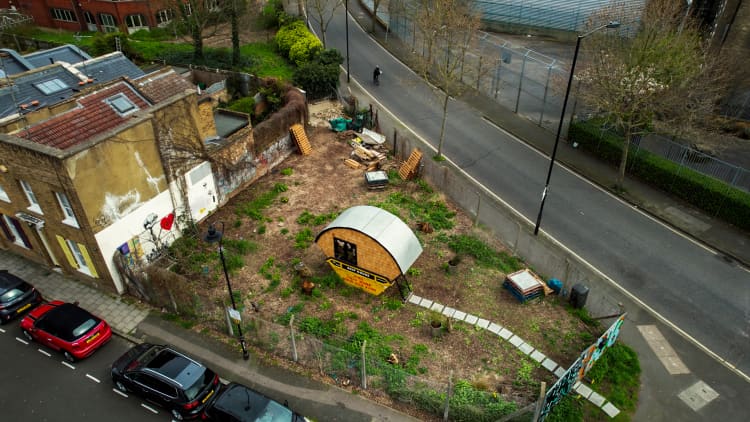Second marriages have a higher rate of divorce than first marriages, according to U.S. Census data.
This is partly because of the familial baggage each partner inherits, says Lisa Marie Bobby, psychologist and clinical director of Growing Self Counseling & Coaching in Denver.
"The reason why second marriages often fail when there are kids involved is because of blended family dynamics," she says. "They can be extremely difficult and take people by surprise."
Blending a family is undoubtedly challenging, but with humility and patience, you can make it work, Bobby says.
Here are her four tips for creating a successful blended family.
1. Create a 'mental map'
A common "source of conflict," Bobby says, is that one parent enters the family marriage and thinks they can change or improve the way the child is being raised.
That's why it's important to have explicit conversations, without the kids, about what each person's role is in relation to the child.
"What is your mental map of how you think things should be?" Bobby says. "That needs to be discussed and oftentimes shifted in order for you to have a positive experience."
What is your mental map of how you think things should be?Lisa BobbyMarriage therapist.
Discuss how you each see your roles developing over time as the kids get older. If each of you has kids, how do you want the kids to relate to each other?
Communicating clearly about how you want your family to evolve can help you both be on the same page.
2. Set boundaries
"Get very, very clear about the boundaries of your role in the family," Bobby says.
There might be subjects that your partner doesn't want you to discuss with their child or activities they don't want you to do with them.
Learn what those are as early as possible to minimize friction later.
3. Recognize your place
A step parent should be a "friendly adult" to their step children, not an additional parent, Bobby says.
"The relationship these step kids have with their parents is going to be more powerful and more enduring and has to be prioritized over your desire for unity," she says.
Part of recognizing your place is knowing that you don't have a say in these kids' lives.
"Do not have the expectation that you have parental authority," she says.
It takes some humility to accept this, but doing so often eases some tension.
"I do think over time you can be a warm, pleasant, friendly adult that doesn't get much of an opinion on the way things go down," she says. "You didn't marry them, you married their parents."
4. Don't take things personally
Regardless of how you act, your step kids might not warm up to you quickly, or at all.
"Do not have an expectation that these children will like you, much less be pleased to have you around," she says.
They might say or do hurtful things. This is okay and normal, Bobby says.
"When children are in pain it always comes out behaviorally, so shift your expectations around behaviors and expect that kids are going to be hurting, they are going to be scared and they are really really going to need a lot of compassion and understanding from their parents," she says.
Do not have an expectation that these children will like you, much less be pleased to have you around.Lisa BobbyMarriage counselor
Over time, you might find a groove and chisel out a role for yourself.
"The fantasy is that it's going to be its own family," Bobby says. "After a decade, maybe, if everybody does a good job, it can gel into something nice, but I think people over-index trying to make that happen."
Be present, but not imposing.
"Treat [your step kids] like a cat," Bobby says. "Be pleasant and available and let them come to you."
DON'T MISS: Want to be smarter and more successful with your money, work & life? Sign up for our new newsletter!
Get CNBC's free report, 11 Ways to Tell if We're in a Recession, where Kelly Evans reviews the top indicators that a recession is coming or has already begun.



